Description
What is Pebneton?
Pebneton, a refined herbal supplement from Herbs Solutions by Nature, crafted as an effective Natural Treatment for Bell’s Palsy. This potent formula is designed to support nerve recovery and facial muscle function with a blend of carefully selected herbal ingredients. Serpentine, Arillus Myristicae, Elephant Creeper, Nutmeg, and Saffron come together in precise doses—75 mg of Serpentine, 60 mg of Arillus Myristicae, 30 mg of Elephant Creeper, 30 mg of Nutmeg, and 19 mg of Saffron—forming a balanced, synergistic approach to healing.
Pebneton is formulated to help reduce inflammation and encourage enhanced blood circulation to the affected facial nerves, supporting restoration of motor function and alleviation of discomfort associated with Bell’s palsy. Known for its anti-inflammatory properties, Serpentine helps soothe nerve irritation, while Arillus Myristicae boosts immune response. Elephant Creeper and Nutmeg aid in improving circulation and soothing nerve-related discomfort, and Saffron adds calming and restorative qualities to enhance overall well-being.
Offered by Herbs Solutions by Nature, Pebneton exemplifies a holistic Natural Treatment for Bell’s Palsy—trusted, gentle, and thoughtfully formulated. Whether facing facial weakness, numbness, or asymmetry, this herbal blend aims to support the body’s natural healing process and help restore facial balance in a safe, side-effect-friendly way.
Natural Treatment for Bell’s Palsy
The Natural Treatment for Bell’s Palsy offered by Herbs Solutions by Nature is a specialized herbal formulation designed to help support facial nerve function, reduce inflammation, and promote faster recovery from the symptoms of Bell’s Palsy. Pebneton carefully crafted remedy blends time-tested herbs that have been traditionally used for neurological and muscular health, aiming to bring relief and restore balance naturally without relying on synthetic chemicals or harsh treatments. By targeting the root causes of nerve inflammation and muscle weakness, this natural formula works holistically to support the body’s healing process, making it a safe and effective choice for those seeking a gentle yet powerful solution.
Bell’s Palsy can cause sudden facial paralysis, drooping on one side of the face, difficulty in closing the eye, and challenges with smiling or speaking. The Natural Treatment for Bell’s Palsy from Herbs Solutions by Nature is designed to help address these issues by improving blood circulation to the affected areas, supporting nerve regeneration, and easing muscle stiffness. Herbal Remedies for Bell’s Palsy are often preferred by individuals who want to avoid the side effects associated with pharmaceutical medications, and this product offers a natural, non-invasive path to recovery. Its plant-based composition ensures that your body receives the nutrients and bioactive compounds it needs to heal, while also boosting overall immunity and reducing oxidative stress that may contribute to nerve damage.
Supplements for Bell’s Palsy play an important role in providing essential nutrients that support the nervous system. Pebneton particular formulation is enriched with herbs known for their anti-inflammatory, antioxidant, and nerve-calming properties. Each ingredient has been selected based on its traditional use and modern understanding of how it interacts with the body’s healing mechanisms. By taking this supplement consistently, users may experience gradual improvements in facial muscle strength, reduced tingling or numbness, and improved facial symmetry. The gentle yet effective nature of the product makes it suitable for long-term use, ensuring continued nerve support even after initial recovery.
Herbs Solutions by Nature has developed Pebneton keeping in mind the importance of safety, efficacy, and natural purity. The formula is free from artificial additives, preservatives, and harmful chemicals, ensuring that you receive only the purest form of nature’s healing power. Each batch is prepared under strict quality control measures to guarantee consistency and potency. The brand’s commitment to natural wellness ensures that customers get a product they can trust for effective results without compromising their overall health.
Using the Natural Treatment for Bell’s Palsy regularly can help reduce the discomfort associated with facial paralysis, such as muscle twitching, dryness of the eye, and difficulty in chewing or speaking. The herbal blend works synergistically to nourish the nervous system, relax tense muscles, and protect nerve cells from further damage. This holistic approach not only aids in recovery but also helps prevent the recurrence of symptoms, making it a valuable part of a long-term wellness plan.
For those who have tried other methods without success, Pebneton offers a promising alternative. By focusing on the body’s natural healing capabilities, the remedy empowers users to regain control over their facial movements and confidence. Herbal Remedies for Bell’s Palsy are becoming increasingly popular due to their ability to work with the body rather than against it, and Herbs Solutions by Nature has perfected this approach with their unique, potent blend.
The supplements are easy to incorporate into your daily routine, requiring no complicated procedures or medical supervision. Simply follow the usage directions provided to ensure maximum benefit. Consistency is key, as the natural compounds in the herbs need time to build up in the system and exert their full effect. Many users have reported noticeable improvements within a few weeks, with continued progress over the months that follow.
In addition to physical benefits, this Natural Treatment for Bell’s Palsy may also provide emotional and psychological relief. The frustration and self-consciousness that often accompany facial paralysis can take a toll on mental well-being. By helping to restore normal facial function, the remedy can boost self-esteem, reduce stress, and improve overall quality of life. This comprehensive impact is one of the reasons why many people turn to Supplements for Bell’s Palsy from trusted herbal brands like Herbs Solutions by Nature.
The philosophy behind Pebneton is rooted in the belief that nature provides all the tools necessary for healing. By harnessing the power of herbal medicine, Herbs Solutions by Nature offers a safe, reliable, and effective way to combat the effects of Bell’s Palsy without the risks associated with invasive procedures or prolonged pharmaceutical use. The product is suitable for people of various ages, though it is always recommended to consult with a healthcare professional before starting any new supplement regimen.
Pebneton, the Natural Treatment for Bell’s Palsy from Herbs Solutions by Nature is a premium-quality herbal remedy designed to support nerve health, reduce inflammation, and promote faster, more complete recovery from facial paralysis. Combining tradition with modern herbal science, this formulation delivers a holistic solution that addresses both the symptoms and underlying causes of Bell’s Palsy. With its emphasis on safety, purity, and effectiveness, it stands as a trusted choice for anyone seeking an all-natural way to restore facial function and improve quality of life. Whether you are experiencing early symptoms or looking for ongoing nerve support, this product offers the gentle yet powerful healing properties your body needs to recover naturally.
Benefits of Pebneton – The Natural Treatment for Bell’s Palsy
Benefits of Pebneton ton Herbal Supplement for Bell’s Palsy Herbal Treatment includes are:
1. Supports Nerve Regeneration and Function
The most important aspect of Bell’s Palsy recovery is the repair and regeneration of facial nerves. Pebneton’s key ingredient, Serpentine, has been traditionally used to support healthy nerve conduction and restore communication between the brain and facial muscles. This helps in gradually regaining facial mobility, improving speech clarity, and restoring symmetrical facial expressions.
2. Reduces Inflammation in Facial Nerves
Inflammation is a major factor in Bell’s Palsy, often causing nerve compression. Arillus Myristicae and Saffron in Pebneton are known for their powerful anti-inflammatory properties. By reducing swelling and irritation around the affected nerve, these herbs help relieve discomfort and speed up the healing process.
3. Improves Blood Circulation to the Facial Area
Healthy blood flow is essential for nerve healing. Elephant Creeper and Nutmeg work synergistically to boost circulation, ensuring that the facial nerves and muscles receive adequate oxygen and nutrients for recovery. This increased circulation not only supports healing but also helps prevent further nerve damage.
4. Relieves Facial Muscle Weakness and Stiffness
Bell’s Palsy can leave the facial muscles feeling stiff, weak, or even numb. Pebneton’s herbal formula nourishes the muscles, improving flexibility and preventing long-term stiffness. Elephant Creeper, in particular, is valued in traditional medicine for enhancing muscle tone and strength.
5. Restores Facial Symmetry
The visible effects of Bell’s Palsy can affect self-confidence. By supporting nerve repair, improving circulation, and reducing inflammation, Pebneton helps restore facial symmetry over time. As the nerves heal, the muscles on the affected side regain strength and coordination, leading to a more balanced appearance.
6. Boosts Immune System Function
A strong immune system is crucial for preventing viral triggers that can worsen Bell’s Palsy symptoms. Saffron and Nutmeg are rich in antioxidants that help defend the body against infections and oxidative stress, both of which can hinder nerve recovery.
7. Provides a Safe, Chemical-Free Alternative
Many people are concerned about the side effects of conventional medications for Bell’s Palsy. Pebneton offers a completely herbal, natural treatment for Bell’s Palsy that is free from harmful chemicals, making it suitable for long-term use without dependency or toxic buildup.
8. Enhances Nerve Communication for Faster Recovery
The blend of Serpentine and Arillus Myristicae in Pebneton supports the electrical impulses that travel through nerves, ensuring faster and more efficient communication between the brain and facial muscles. This accelerates the return of natural facial movements like smiling, blinking, and chewing.
9. Reduces Tingling and Numbness
Many Bell’s Palsy patients experience lingering sensations of tingling or numbness. The soothing properties of Elephant Creeper and Saffron help calm overactive nerve signals and restore normal sensation in the affected areas.
10. Promotes Emotional Well-being
Bell’s Palsy can cause emotional distress due to sudden changes in facial appearance and daily functioning. The calming properties of Nutmeg and Saffron help reduce stress and anxiety, supporting a more positive mindset during recovery.
Usage Instruction
Pebneton Herbal Supplement Usage Instruction:
Dosage:
- Adults: Take 2 tablets daily, preferably after meals, with water or warm milk.
- Alternate dosing (if applicable): If using a higher-strength variant (240 tablets), consider 1 tablet twice daily after meals.
Administration Tips:
- Swallow tablets whole with liquid; do not crush unless otherwise advised.
- To enhance effectiveness, maintain consistent daily intake at the same times.
- If difficulty swallowing, consult a healthcare provider for alternatives (e.g., tablet crush or suspension).
Duration of Use:
- For optimal results, use continuously for 4–6 weeks, monitoring improvements in facial muscle responsiveness and symmetry.
- If no improvement is noted after this period, seek medical evaluation.
Why Pebneton for Bell’s Palsy?
Bell’s Palsy—a sudden, often distressing paralysis of one side of the face—can significantly disrupt daily life, from expressing emotion to speaking and eating. Many individuals seek solutions that not only relieve symptoms but also support the body’s natural healing processes. Here’s why Pebneton emerges as a compelling natural treatment option:
- Holistic Healing, Naturally
Pebneton is formulated as a potent combination of carefully selected herbs—Serpentine (75 mg), Arillus Myristicae (60 mg), Elephant Creeper (30 mg), Nutmeg (30 mg), and Saffron (19 mg). These ingredients are renowned for their natural anti-inflammatory, immune-boosting, and nerve-supporting properties.
- Supports Nerve Function and Recovery
One of Pebneton’s standout benefits is its ability to stimulate nerve function. Coupled with increasing blood flow to the affected area, the formula promotes healing of the damaged facial nerve—an essential factor in Bell’s Palsy recovery.
- Reduces Inflammation & Boosts Immunity
Inflammation around the facial nerve can intensify symptoms. Pebneton’s rich natural anti-inflammatory and immune-supporting profile helps calm nerve irritation and strengthens the body’s defense mechanisms to counter underlying triggers—potentially including viral agents.
- Ease of Use with Gentle Relief
For those experiencing discomfort, Pebneton offers soothing relief from pain in muscles and joints while addressing facial symptoms. Its oral, non-invasive format—two tablets taken after meals—means simple, stress-free incorporation into daily routines.
- Targets Multiple Symptoms
Beyond nerve and inflammation support, Pebneton is crafted to:
- Prevent growth of bacteria, viruses, and fungi
- Improve facial motor function—helping restore symmetry and muscle control
- Alleviate discomfort and aid immune response
This multi-action support aligns with the holistic approach many seek during recovery.
- Safe, Natural, and Thoughtfully Composed
Pebneton offers a reassuring alternative to conventional medication. It’s presented as a safe herbal supplement with “no side effects,” providing a gentler option for individuals concerned about synthetic drugs.
- Integrates with Holistic Recovery Strategies
Combining Pebneton with standard self-care—like eye lubrication, facial exercises, and protecting the affected eye—can enhance overall wellness and recovery speed.
- From a Trusted Herbal Source
Manufactured by Herbs Solutions by Nature, a company with over eight years of experience in herbal products, Pebneton reflects an established foundation in quality and herbal expertise.
Alternative Treatment for Bell’s Palsy
Herbal Treatment for Bell’s Palsy may help the motor function of facial muscles.
- Using lubricating eye drops during the day.
- Wear an eye patch at night.
- Massaging and exercising your face according to your physical therapist’s advice.
- Wear eyeglasses during the day to protect your eye
- Warm cloth may help resolve pain and discomfort.
Also read about: Natural Treatment for Narcolepsy
Pebneton Q&A
Q1: What is Pebneton?
A: Pebneton is a premium herbal supplement formulated specifically to help manage the symptoms of Bell’s Palsy. It is created using carefully selected natural ingredients that work synergistically to promote nerve health, reduce facial inflammation, and support recovery. Unlike conventional medications that may have side effects, Pebneton offers a gentle yet effective approach through herbal remedies for Bell’s Palsy, making it a safe choice for long-term use.
Q2: How does Pebneton work for Bell’s Palsy?
A: Pebneton supports your body’s natural healing process by targeting the root causes of Bell’s Palsy. Its herbal blend is designed to improve blood circulation to the facial nerves, reduce nerve inflammation, and enhance overall nerve function. This makes Pebneton a trusted option for those seeking a natural treatment for Bell’s Palsy without relying solely on synthetic drugs.
Q3: What makes Pebneton different from other treatments?
A: The key difference lies in Pebneton’s natural composition. While many treatments for Bell’s Palsy focus on symptom management, Pebneton addresses nerve recovery from within. It combines potent herbal extracts that have been traditionally used for nerve repair, inflammation reduction, and immune support. This makes Pebneton one of the most effective herbal remedies for Bell’s Palsy, especially for those who prefer natural healing methods.
Q4: Who can benefit from using Pebneton?
A: Pebneton is suitable for adults experiencing facial weakness, numbness, or discomfort due to Bell’s Palsy. It is especially beneficial for individuals who want a holistic, natural treatment for Bell’s Palsy without harsh chemicals. However, it is always advisable to consult a healthcare professional before starting any supplement, especially if you are pregnant, nursing, or have underlying health conditions.
Q5: How should I take Pebneton?
A: The recommended dosage of Pebneton is provided on the product packaging. For best results, it should be taken consistently as directed, alongside a healthy diet and lifestyle. Regular use supports faster nerve recovery and helps prevent recurrence.
Q6: Are there any side effects?
A: Pebneton is made from 100% natural ingredients and is generally well-tolerated. Most users do not experience side effects. However, as with any herbal supplement, individuals with allergies to certain plants should review the ingredient list carefully before use.
Q7: How long does it take to see results with Pebneton?
A: Results vary depending on the severity of symptoms and individual body response. Some users notice improvements in facial mobility and reduced discomfort within a few weeks, while others may require longer usage for optimal recovery.
Q8: Can Pebneton be used alongside other treatments?
A: Yes, Pebneton can often be used alongside physiotherapy, facial exercises, and certain prescribed medications. However, it’s best to check with your doctor to ensure there are no conflicts with your current treatment plan.
Q9: Where can I buy Pebneton?
A: Pebneton is available exclusively at Herbs Solutions by Nature, ensuring you receive the authentic, high-quality formulation trusted by many for natural treatment for Bell’s Palsy.

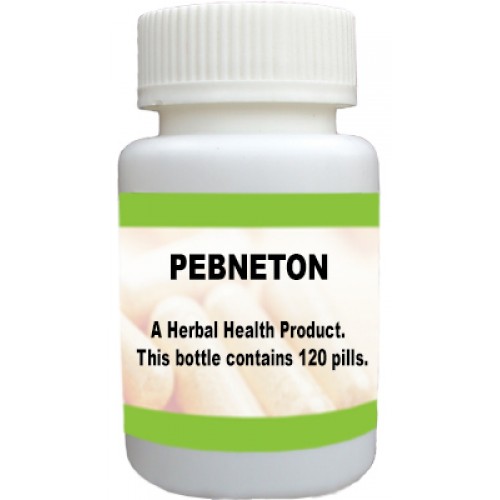
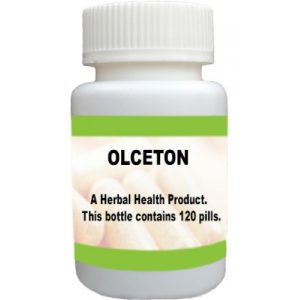
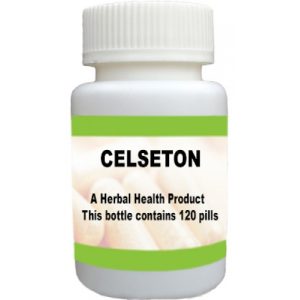
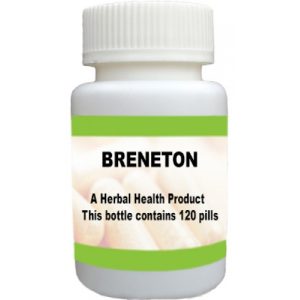
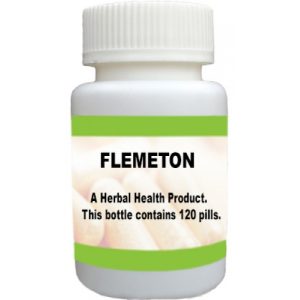
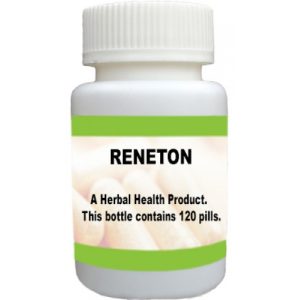
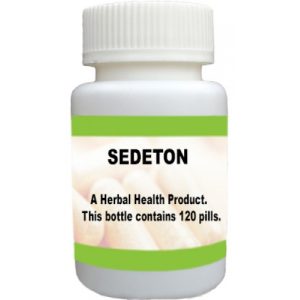
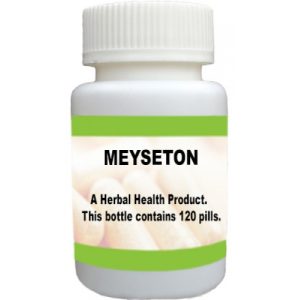
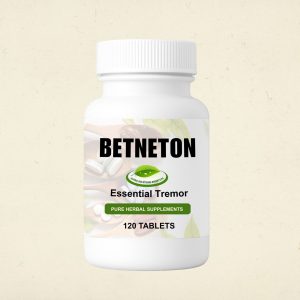
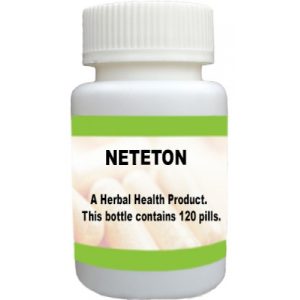
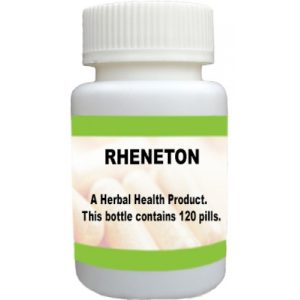
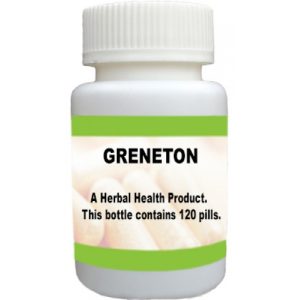
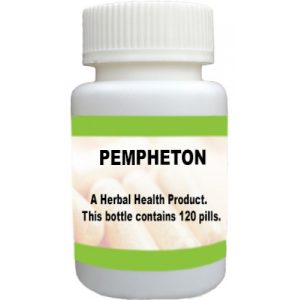
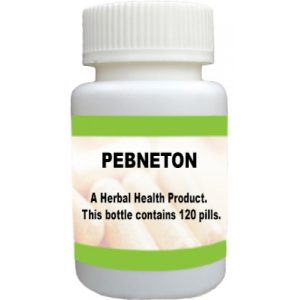
Reviews
There are no reviews yet.